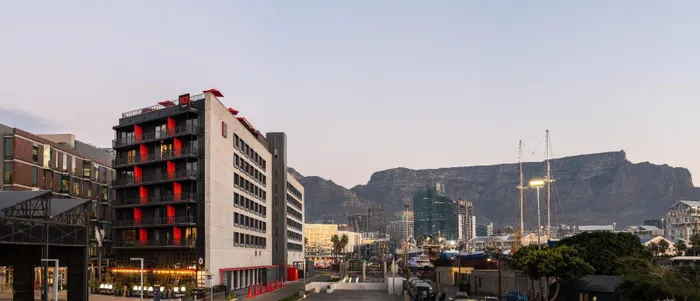Sub-Saharan Africa's hotel pipeline booms with 577 new projects

Radisson Red Cape Town.
Image: Supplied
Africa's hotel industry is undergoing a transformation unlike any seen before, with 577 new hotels and resorts currently under construction across the continent, promising an addition of over 104,000 new rooms.
This remarkable surge represents a 13.3% increase, far exceeding global growth rates, and is largely driven by the dynamic sub-Saharan African region.
“We’re witnessing clear market signals across sub-Saharan Africa indicating significant expansion opportunities, particularly with the sector's potential to generate $168 billion in revenue and create over 18 million jobs by 2033,” Daniel Trappler, Senior Director of Development Southern and Eastern Africa at Radisson Hotel Group said.
The data underscored a burgeoning optimism in a sector that has often been overshadowed by economic and political uncertainties.
Zimbabwe emerges as a key growth market
Among the most noteworthy stories is Zimbabwe’s rise as a focal point for development.
Once regarded as a politically troubled destination, Zimbabwe is shedding its outdated reputation.
“Major hotel deals are taking shape across Victoria Falls, Harare, Bulawayo and Mutare as the country slashes prohibitive tourism fees and invests in essential infrastructure,” Trappler added.
This strategic pivot aims to make Zimbabwe’s world-class attractions more accessible and encouraging sustainable hospitality investments.
Zanzibar’s untapped potential draws investor focus
Further afield, Zanzibar is capturing the attention of investors aiming to capitalise on its undersupplied market.
Despite a significant increase in visitors, over 105,000 arriving in August 2025, a staggering 46% surge in international arrivals, hospitality brands have only recently begun to make inroads.
Notably, visitors currently enjoy 88.5% occupancy rates, staying an average of 8.2 days, signalling an imbalance between supply and demand that presents thriving opportunities for hotel investments.
Kenya and South Africa drive diverse regional growth
In East Africa, Kenya is poised for continuous growth, bolstered by a projected KSh1.2 trillion contribution to the economy from its travel and tourism sector by 2025, marking a 24% increase over 2019 levels and supporting 1.7 million jobs.
Meanwhile, South Africa showcases a promising trajectory, with domestic tourism spending hitting R445 billion, 3.8% above pre-pandemic levels.
Both nations reflect an African tourism renaissance, propelled by natural beauty, vibrant cultural heritage, and an initiative to enhance strategic infrastructure.
These factors position them favourably for sustained growth against the backdrop of a world eager to explore sub-Saharan Africa's diverse offerings.
Development challenges persist
However, this booming growth comes with its challenges.
High construction costs can complicate project development, and securing financing remains a critical hurdle.
Developers face unique budget alignment issues and may struggle to secure the necessary infrastructure in more remote areas, leading to indefinite project delays.
“The funding landscape adds another layer of complexity, with diverse challenges across markets. For instance, pension funds often finance entire projects directly, while South African developments tend to necessitate intricate financing packages that include commercial banks and private investors,” Trappler said.
In South Africa, banks present particular challenges, preferring stable lease income over the unpredictable revenue streams that hotels generate. Performance guarantees, offered by companies like Radisson, act as a bridging mechanism, enabling hotel owners to reassure banks about feasible returns over extended periods.
A continent poised for investment
“Sub-Saharan Africa is emerging as one of the world's most dynamic hospitality markets, but success demands flexibility and market-specific strategies,” Trappler said, emphasising the importance of adapting to unique regional challenges and opportunities.
Each new hotel development becomes more than just a business venture; it serves as an economic engine, particularly important with Africa's urban population set to double by 2050. This growth positions new hotels as critical hubs for job creation, gateways for foreign investment, and key players in Africa's economic future.
BUSINESS REPORT